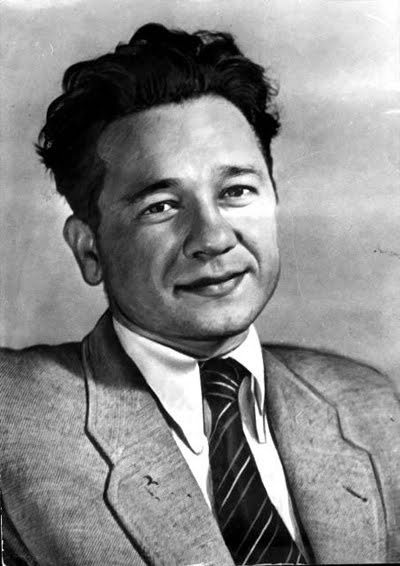Tadeusz Borowski

TB born into the Polish community in Zhytomyr, Ukraine, then part of the USSR.
Father's bookstore is nationalized, he is sent to a camp in the Gulag system in Russian Karelia.
Mother deported to a settlement on the shores of the Yenisey, in Siberia, during Collectivization.
TB and his brother are repatriated from the USSR to Poland through the efforts of the Polish Red Cross. They settle in Warsaw.
Father is freed in a prisoner exchange with communists arrested in Poland.
Mother released.
TB finishes his high school in a secret underground lyceum in Nazi-occupied Poland, and begins studies at the underground Warsaw University (Polish language and literature).
Becomes involved in several underground newspapers and starts to publish his poems and short novels in the monthly Droga, all the while working in a warehouse as a night watchman. It is during this period that he writes most of his wartime poetry, and he clandestinely publishes his first collection, Gdziekolwiek Ziemia (Wherever the Earth).
His fiancée, Maria, does not return home one night.
He is arrested, thrown into the infamous Pawiak prison and then transported to Auschwitz, where he is forced into slave labor in extremely harsh conditions.
Works on a railway ramp in Auschwitz-Birkenau, where he witnesses Jews first being told to leave their personal property behind, and then being transferred directly from the trains to the gas chambers.
While a prisoner at Auschwitz, Borowski catches pneumonia; afterwards, he is put to work in a Nazi medical experiment "hospital."
TB transported from Auschwitz to the Dautmergen subcamp of Natzweiler-Struthof, and finally to Dachau.
1 May: Dachau-Allach is liberated by the Americans. TB sent to a camp for displaced persons near Munich.
31 May: TB returns to Poland. At this time he finds out that his wartime fiancée, with whom he had lost all contact when she herself was arrested in 1943, has survived the camps and emigrated to Sweden.
TB turns to prose after the war, believing that what he has to say can no longer be expressed in verse. His work is published as a series of short stories titled Pozegnanie z Maria (Farewell to Maria, but titled in English, This Way for the Gas, Ladies and Gentlemen).
TB joins the Communist-controlled Polish Workers' Party and writes political tracts. At first he believes that Communism is the only political force truly capable of preventing any future Auschwitz from happening.
TB receives the National Literary Prize, Second Degree.
A close friend of his is imprisoned and tortured by the Communists; because of this Borowski becomes completely disillusioned with the regime.
1 July: TB commits suicide at the age of 28 by breathing gas from an oven.